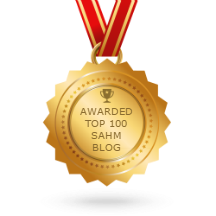How huge is the effect of Malaria?
In 2015, there were 296 million cases of malaria worldwide resulting in an estimated 731,000 deaths. Approximately 90% of both cases and deaths occurred in Africa. Malaria is commonly associated with poverty and has a major negative effect on economic development. In Africa, it is estimated to result in losses of US$12 billion a year due to increased healthcare costs, lost ability to work, and negative effects on tourism.
What can we do to reduce the risk of the disease?
By preventing mosquito bites through the use of mosquito nets and insect repellents, or with mosquito control measures such as spraying insecticides and draining stagnant water, the risk of spreading the disease can be reduced. Several medications are also available to prevent malaria in travelers to areas where the disease is common. In areas with high rates of Malaria, occasional doses of the combination medication are recommended in infants and after the first trimester of pregnancy. Despite a need, no effective vaccine exists, although efforts to develop one are ongoing since 2016.
How is Malaria treated?
There are recommended antimalarial medications to treat the disease such as the Doxycycline 100mg malaria capsules. Doxycycline capsules are an effective antibiotic treatment for preventing malaria in at risk areas whilst travelling. Malaria can be anywhere and it might affect us unknowingly. Proper education regarding the disease is needed so we will not fall victim to it.
Malaria can be anywhere and it might affect us unknowingly. Proper education regarding the disease is needed so we will not fall victim to it.
In 2015, there were 296 million cases of malaria worldwide resulting in an estimated 731,000 deaths. Approximately 90% of both cases and deaths occurred in Africa. Malaria is commonly associated with poverty and has a major negative effect on economic development. In Africa, it is estimated to result in losses of US$12 billion a year due to increased healthcare costs, lost ability to work, and negative effects on tourism.
What can we do to reduce the risk of the disease?
By preventing mosquito bites through the use of mosquito nets and insect repellents, or with mosquito control measures such as spraying insecticides and draining stagnant water, the risk of spreading the disease can be reduced. Several medications are also available to prevent malaria in travelers to areas where the disease is common. In areas with high rates of Malaria, occasional doses of the combination medication are recommended in infants and after the first trimester of pregnancy. Despite a need, no effective vaccine exists, although efforts to develop one are ongoing since 2016.
How is Malaria treated?
There are recommended antimalarial medications to treat the disease such as the Doxycycline 100mg malaria capsules. Doxycycline capsules are an effective antibiotic treatment for preventing malaria in at risk areas whilst travelling.
 Malaria can be anywhere and it might affect us unknowingly. Proper education regarding the disease is needed so we will not fall victim to it.
Malaria can be anywhere and it might affect us unknowingly. Proper education regarding the disease is needed so we will not fall victim to it.










.png)




 />
/>








.png)

4 comments:
Thank you po for sharing this important issue po madam! doble ingat tlga dapat!
Thank you po, kay langan po talga maging aware at labanan ang Malaria
Post a Comment